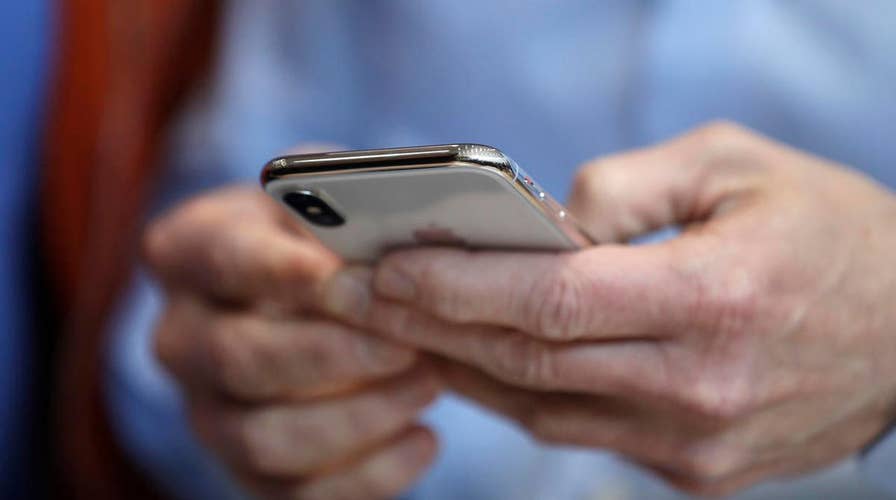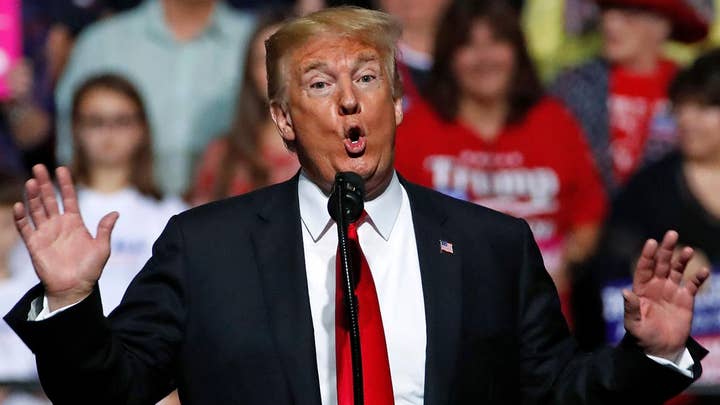West Virginia to allow smartphone voting for midterms
West Virginia's decision to allow voters to vote through their smartphone raises serious security concerns.
You can already trade stocks, find a new home or board a flight using your smartphone – perhaps it was only a matter of time before you could vote.
West Virginia will be the first state to formally test this technology, allowing overseas residents to vote by app in November's general election. As part of an effort to simplify the absentee ballot process – and reduce the risk of votes not being counted – West Virginia Secretary of State Mac Warner approved the electoral innovation, which is meant for West Virginians living abroad or serving in the military overseas.
“West Virginia is a really a leader in cybersecurity,” Mike Queen, a spokesperson for Warner, told Fox News. “This is the first of its kind in the country, there is nothing like it.”
The program, which currently is available to overseas residents from 24 of the state’s 55 counties, is the first in the United States and has drawn both praise and warnings amid persistent cybersecurity concerns including the threat of election meddling from Russia and other countries.
The idea for an alternative to traditional, mail-in absentee ballots first struck Warner, a West Point graduate and U.S. Army veteran, while he was serving in Afghanistan and was unable to vote due to logistical challenges. The issue continued to nag at Warner when he took office in 2017 as many Armed Forces members from the Mountain State were still having trouble casting a ballot while on duty in Iraq and Afghanistan.
“These men and women of the U.S. Armed Forces deserve to be able to easily vote when they are protecting us overseas,” Queen said. “Secretary Warner has been very involved in researching the options for our military members.”
Enter Voatz: a Boston-based tech startup that created an app that uses blockchain technology to collect the ballots cast via phone.
To do this, voters register for the app by uploading a video selfie and their photo identification before going through a multifactor authentication process to log in. The blockchain technology, which is most commonly used with cryptocurrencies, maintains a list of transactions – which in this case are votes – that are stored on all the computers participating in a Voatz network. The computers then verify the additions to the list and encrypt the voter records to protect them from hackers.
“In our three years as a company, more than 75,000 votes have been cast on our platform, and we’ve administered more than 30 pilot elections,” Voatz said in a blog post on its website. “With each election we’ve learned something new, and we will continue to take the time necessary to ensure that the voting process is secure for voters.”
Despite the reassurances from Voatz and West Virginia officials, the idea of app-based voting has drawn concern amid reports that Russia may try to influence the outcome of the 2018 midterm elections.
A headline from the website TechCrunch called Voatz “a terrible, horrible, no-good, very bad idea,” warning about the dangers of a "centralized" voting system and citing concerns that such technology can have "systemic flaws" even if it is not breached. The company also has faced claims that they are rushing into app-based voting on a broad scale too quickly and more testing is needed before it’s implemented.
“Trying to use blockchain as a solution is just fraught with issues when it comes to long-term secrecy and transparency,” Maurice Turner, a senior technologist at the Center for Democracy and Technology, told Fox News. “It’s absolutely imperative that we walk slowly and carefully before we just [put] this out to the public.”
Officials from West Virginia, however, are confident that they will be able to shut down the voting if any hacks are detected and say the pilot program they ran in May went off without any anomalies.
“Absentee voting has already started for the November midterms and so far there have been no glitches,” Queen said. “If there are any hacking or security issues, the platform can be stopped at any time and the votes already cast will not be lost.”
He added there are currently no plans to expand the app-based voting platform to the general electorate in West Virginia.
“This was never designed to replace the current voting ballots in West Virginia,” he said. “This is only for overseas residents and military members. … This is meant to address a very particular problem with a very small segment of the population.”














































